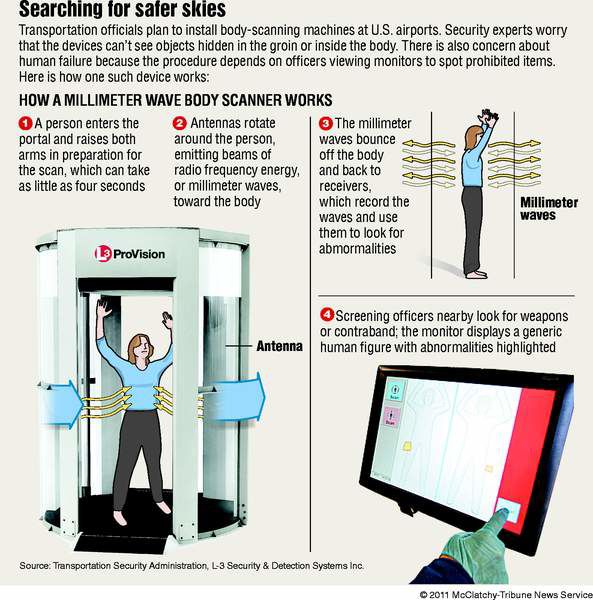TSA installing new scanners
Published 4:00 am Thursday, December 8, 2011

- TSA installing new scanners
State-of-the-art body scanners will soon replace standard metal detectors at the Redmond Airport. Federal officials stress, however, that the scanners do not feature the peek-a-boo technology that sparked public outrage a few years ago.
The Transportation Security Administration is in the process of upgrading security checkpoints nationwide with Advanced Imaging Technology machines, which bounce tiny waves off a person’s body in search of irregularities.
Trending
The machine installed in Redmond doesn’t take pictures of travelers’ bodies in the same way much-criticized backscatter X-ray machines installed elsewhere do. The backscatter machines produced revealing images in grayscale, some of which were leaked online and received a decidedly hostile reception.
“People don’t like the idea of someone in a room somewhere looking at those photos,” said Michael Irwin, TSA’s federal security director for Oregon. “This is the direction we’re going now in our airports. It’s bouncing a radio wave off your body and returning information if anything is irregular.”
The output from the scanner shows the generic outline of a human being. If any abnormalities appear, they are marked on the outline with a yellow box.
The machine picks up on both metallic and nonmetallic items, from cellphones and belt buckles to more nefarious objects.
“At that point, we can do a targeted pat-down,” Irwin said. “Or you could just be asked to remove the item from your pocket.”
Airport Manager Carrie Novick said she’s happy with the new device.
Trending
“After all the noise they heard about the (backscatter) body scan, they did the smart thing and went with the stick figures,” Novick said.
One scanner is currently up and running in Redmond. A metal detector will remain in place, allowing travelers to bypass the new technology if they want to.
Eight scanners have been installed at Portland International Airport and one in Medford.
Another is scheduled to be installed in Eugene by the end of the month. In September, the TSA bought 300 of the new scanners for $44.8 million — an average cost of roughly $149,000 each — with the intent of deploying them nationwide.
Irwin said it’s possible the backscatter machines will be removed as the new devices are installed, but said those flying out of Oregon won’t notice a change because “X-ray devices were never used in Oregon.”








